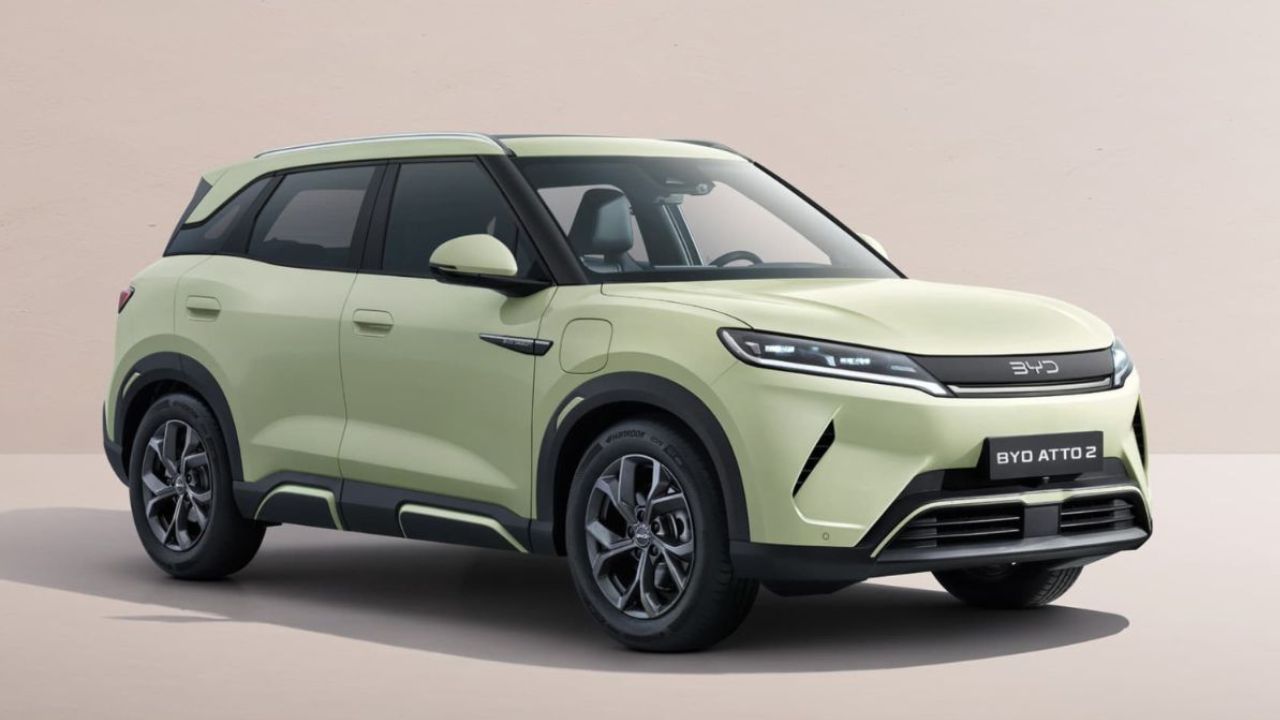 English
English

China auto company is ready to launch its cheapest car in India. This step might increase tensions for Creta Electric car.

SUV Atto 2 to launch in India
New Delhi: China famous auto company BYD is set to further increase the range of its electric cars in India. The company has already launched cars like Atto 3, Seal, eMax 7 and Sealion in the Indian market. Now the company is testing its new electric SUV Atto 2 in India. Recently this car has been seen during testing on Indian roads.
This model has already been launched in the UK market. It is considered that some changes will be made in its features and setup. In such a situation, it is estimated that its price in India can be Rs 35 lakh ex-showroom. After launching in India, this car will compete directly with Creta Electric.
Electric Cars: Tesla Makes Grand Entry in India, Model Y Bookings Open Now; Get All Details
If the automaker launches the Euro-spec BYD Atto 2 in India, it will have a 45 kWh BYD Blade battery pack, which can provide a range of up to 463 km claimed by WLTP on a single charge. The BYD Atto 2 has a FWD motor that is capable of generating a maximum power of 174 bhp and a peak torque of 290 Nm. This electric powertrain enables it to accelerate from 0 to 100 kmph in 7.9 seconds at a top speed of 160 kmph.
The BYD Atto 2 looks quite powerful from the front. This electric SUV features ‘Mobius Ring’ connected LED tail lights, NFC key, wireless Android Auto and Apple CarPlay, panoramic sunroof, aluminium roof rails, electric folding ORVMs and rain-sensing wipers.
Electric car sales in India may cross 7% by FY28
Electric car sales in India have grown tremendously in the last few years. According to the report, while only 5,000 units were sold in FY21, by FY25 this figure has reached above 1.07 lakh units. However, the two-wheeler and three-wheeler segments still hold the largest share in the EV market. But the four-wheeler segment is also now growing rapidly due to public policy and increasing support from the industry.
The biggest challenge facing EVs has been the lack of public charging infrastructure, which is now being rapidly overcome. While there were 5,151 public charging stations in India in 2022, this number has increased to more than 26,000 by the beginning of FY25. This growth rate has been more than 72 percent annually.
States like Maharashtra, Delhi, Tamil Nadu and Gujarat have initiated location-based incentives (from providing land to subsidy in capital expenditure). Along with this, municipal corporations are also now making EV ready parking mandatory in residential and commercial projects. Due to which buyers' concern about range is decreasing.
No related posts found.